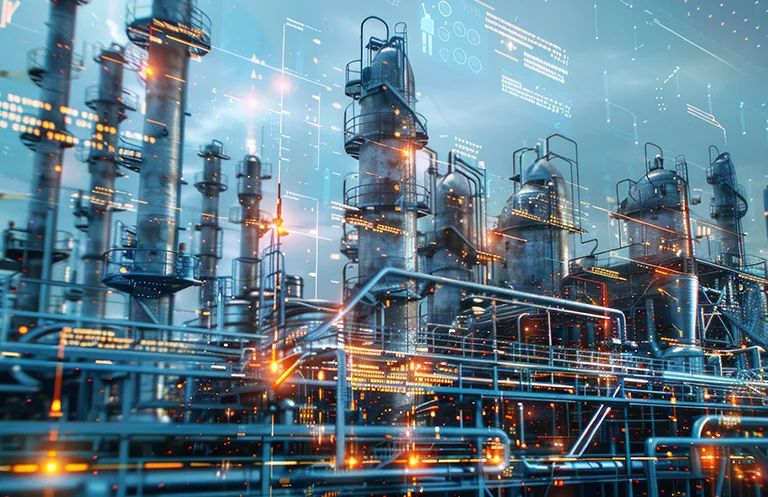With the latest developments in Machine Learning, a revolution has begun that was previously unimaginable. Machine Learning is a technology that is disrupting many conventional business practices. Examples of the wonders of machine learning are all around us, with ChatGPT being the most recent one.
According to forecasts, the worldwide machine learning (ML) market is expected to increase from $21.17 billion in 2022 to $209.91 billion by 2029, exhibiting a Compound Annual Growth Rate (CAGR) of 38.8% during the period from 2022 to 2029.
The term Machine Learning is often used interchangeably with Artificial Intelligence among C-suite executives despite its popularity. However, Machine Learning is an AI subfield that allows systems to make accurate predictions based on data and past experiences with minimal or no human involvement.
Machine Learning has already become a fundamental part of many large businesses in the industry today. The use of Machine Learning to bring about transformational change is not limited to industry titans but also to many startups and small businesses.
As a result of Machine Learning, businesses can make data-driven decisions with greater accuracy as they can analyze large volumes of data. Machine Learning models can enhance workforce productivity and efficiency by streamlining complex workflows and automating manual and repetitive tasks, in addition to data analysis. Businesses are actively integrating Machine Learning services into their core operations.
Industries Where there is a Major Disruption by Machine Learning
Here’s how machine learning will shape businesses across industries in the next few years. To enhance the overall customer experience, drive innovation, and increase returns on investment, business leaders are diligently adopting ML models in their businesses.
Banking and Financial Services
Banking and Financial Services Machine learning is already being used by businesses in the BFSI sector to detect fraud and delegate repetitive tasks to bots. We will see more mature applications of machine learning in areas such as customer point of view analysis, investment modeling, trading, risk prevention, and others in the coming years.
Traders will be able to take preventive measures and minimize the risk before market crashes by using ML models to replace human intuition in investment prediction and stock price predictions.
Healthcare Sector
In the healthcare vertical, there are large volumes of unorganized data generated every day. In fact, according to a report, by 2025, the healthcare industry’s data generation will grow at a compound annual rate of 36%, which is 6% faster than manufacturing, financial services, logistics, and eCommerce.
Advanced machine learning models can help healthcare providers streamline data and make informed decisions regarding disease predictions and treatment options. Collaborations between physicians, statisticians, data analysts, and data scientists are ongoing to develop the latest tools for accurate disease prediction and treatment.
It is expected that ML models will not only be used to make accurate disease predictions, but also to automate the process of drug discovery, leading to a reduction in the time required to develop a drug.
To go in deep about some use cases of AI/ML in healthcare you can go this page – AI/ML in Vision System for Surgical Support -Use Cases
Manufacturing
Manufacturing companies can improve their assembly lines and production by leveraging data using Machine Learning. Besides serving as a foundation for Industry 4.0, which incorporates data connectivity and automation, this emerging technology also helps manufacturers analyze large volumes of generated data. In the future, predictive maintenance will be utilized along with smart manufacturing, cognitive supply chain management, and efficient warehousing.
How can bringing AI and ML to the Edge benefit the manufacturing sector? You can find the answer to your question here – Smart Manufacturing, Warehousing & Transportation with Edge Intelligence
Transportation
The transportation industry has seen a notable rise in AI. An example is the utilization of self-driving cars. Predictably modeling the transportation industry is difficult. As a result of unpredictable traffic, human mistakes, or accidents, AI is invaluable in this scenario, predicting appropriate actions based on observed data.
The use of artificial intelligence reduces human error in the monitoring of safety regulations, while traffic analytics reduce driving hazards in crowded cities. By scheduling routes at optimal times, detecting traffic in real-time, and more, artificial intelligence can enhance logistics transportation operations. Artificial intelligence can be used to assess traffic conditions and forecast traffic patterns.
Get to know about Applying AI and Machine Learning for Robust Transport Infrastructure
Retail
Through smooth supply chain and customer service, the retail industry will be distributed on several fronts. A retail storefront will benefit from improved inventory management thanks to the development of generative AI in logistics, cutting unnecessary waste and lowering costs. Customized shopping experiences will be available from customer insights and services.
You’re greeted by a hologram asking if you would like to purchase the same items you purchased previously in the movie Minority Report. However, we will likely see greater management of supply chains based on customer insights, which will allow retailers to predict trends and shopping habits that may differ from region to region.
To go in deep about AI/ML in Retail you can go this page
Leveraging Big Data and ML in Retail Industry
Artificial Intelligence for Retail
Machine Learning Development Services: How do they work?
The development of machine learning services can help organizations identify patterns in their data and gain valuable insights. Additionally, machine learning development services are consulting services that help companies create machine learning models to predict and perform other tasks that require high accuracy and speed. Companies use machine learning development services to develop models using information collected from various sources.
Benefits of Machine Learning Development Services
In addition to offering tailored, scalable, and cost-effective solutions, machine learning development services provide many benefits to clients. Increasingly, companies are turning to machine learning development services for personalized, scalable, and cost-effective solutions to their business problems. With these services, companies can build better products with fewer resources. There are several applications for machine learning development services, including predictive analytics, recommendation engines, and natural language processing.
Concluding Lines
Businesses large and small are looking to take advantage of machine learning, which has a lot to offer and the potential to open new opportunities for companies. eInfochips helps organizations construct customized solutions that can run on advanced machine learning algorithms.
eInfochips provides its expertise in ML proof of concept, ML library assessment, ML tools and hosting assessment, model as a service, and ML lifecycle management. If you have not implemented machine learning technology in your business and are looking for a partner, consider eInfochips as your solution provider. You can connect with our team of experts here.












